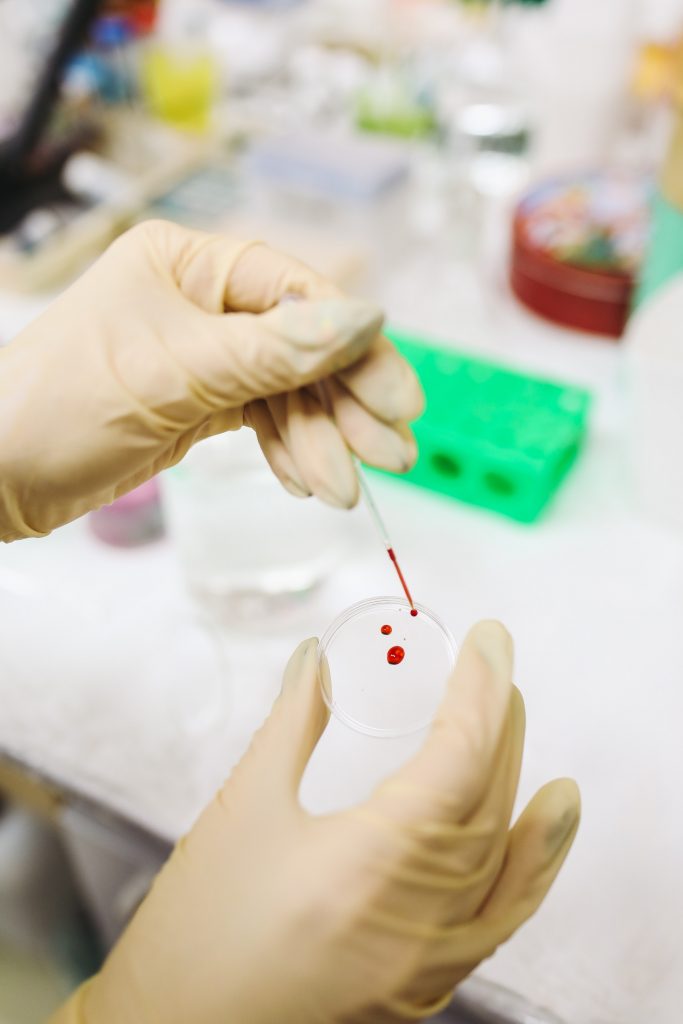
Coronavirus “passports” may be underway.
Researchers in Germany are looking into coronavirus immunity in a massive study. The study will use serological tests which will test people’s blood for antibodies to the virus. The hope is through this extensive testing that it will allow some people who have gone through the virus, to be allowed back to work. Germany is planning on testing 100,000 volunteers in April.
Germans who have developed immunity to the virus will be issued certificates allowing them to return to work.
Germany so far has one of the lowest death rates of COVID-19, just below one per cent.
Germany, like South Korea, has been successful in minimizing the effects of the virus because of aggressive testing measures. Despite the fact they have the fifth-most coronavirus cases in the world. Nearly one million people have already been tested in Germany in the last three weeks. Countries around the world are facing mounting pressure to ramp up their own testing. However, testing has not been reliable everywhere. Spain, for example, had to recall tens of thousands of testing kits bought from a Chinese manufacturer as they only had a 30 percent detection rate.
Germany was also one of the first countries to develop reliable testing for COVID-19. Now, they may be ahead with the development of serological testing as well. Serological tests may be a great aid in tracing the spread of the virus.
Though there are some who worry that Germany is still in early stages and will face a huge second wave of COVID-19 cases soon.
Other countries are now scrambling to follow Germany’s lead in doing serological tests. But even for those who develop antibodies, there are questions of how long immunity to COVID-19 could last.
Immunity to the virus could last anywhere between three months to a year. Notably, persons who contracted SARS – also in the family of coronaviruses – did not have long term immunity and were potentially immune for about a year.
However, since COVID-19 is a new virus, no one knows for sure how long immunity will last. Due to the possibility of reinfection, Germany will monitor those who are granted the passports.
Serological tests can determine who has had the virus but there have been false positives for more common coronaviruses.
Serological tests also have been known to have false negatives where carriers of the virus initially test negative but have not yet passed the virus through their body. So a combination of testing for the virus itself and testing for the antibodies in the bloodstream is necessary.
This will be a boon for frontline workers, especially health care workers who have had to stop working if they tested positive for the virus and add much needed bodies back into helping fight the pandemic.
If serological tests prove beneficial, this could also allow for a lift from lockdown in certain areas, provided that there is some kind of herd immunity, on a case by case basis.
The Food and Drug Administration (FDA) in the United State is now allowing doctors to use blood plasma from recovered COVID-19 patients to treat emergency cases and serological tests can identify donors.
For its part, the German government has yet to comment on the viability of the immunity passport.
In an article by Reuters, Chief microbiologist, Tony Mazzulli, at Toronto’s Sinai Health has said to exercise caution.
He warns that the antibodies working in recovered COVID-19 cases may not be sufficient if people are exposed to the virus in large amounts. Such as in the case of emergency rooms of hospitals.
According to Mazzulli, some of the people with antibodies may still be contagious.
Still, the serological tests remain an attractive option. They are relatively cost-effective and relatively straightforward to administer. US-Company Chembio Diagnostics has already received a $4 million order from Brazilian company Bio-Manguinhos for their DPP system. The patented technology involves a small drop of blood from the fingertip, and develops results in about 15 minutes.
As countries face stark economic realities they may be tempted to use the serological tests to slowly reopen businesses where there is a strong level of immunity. This is particularly true of the United States, where president Donald Trump had previously said he wanted to reopen businesses by Easter. While Trump has backed away from this plan and heeded the advice of medical professionals, the urge for the U.S. to reopen businesses because of their economic impact remains an impetus.
Serological tests have already played an important role in combating the virus when they helped identify a larger infected cluster in Singapore, as reported by Singapore Straits Times.
Researchers around the world are working to develop more serological tests.